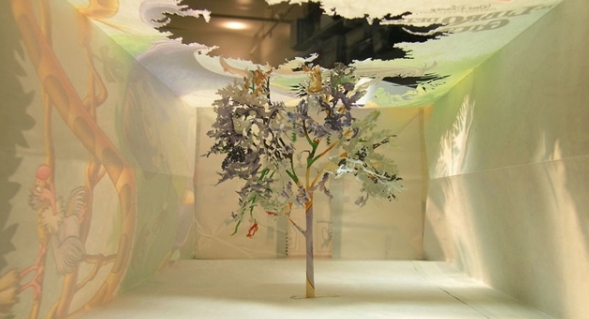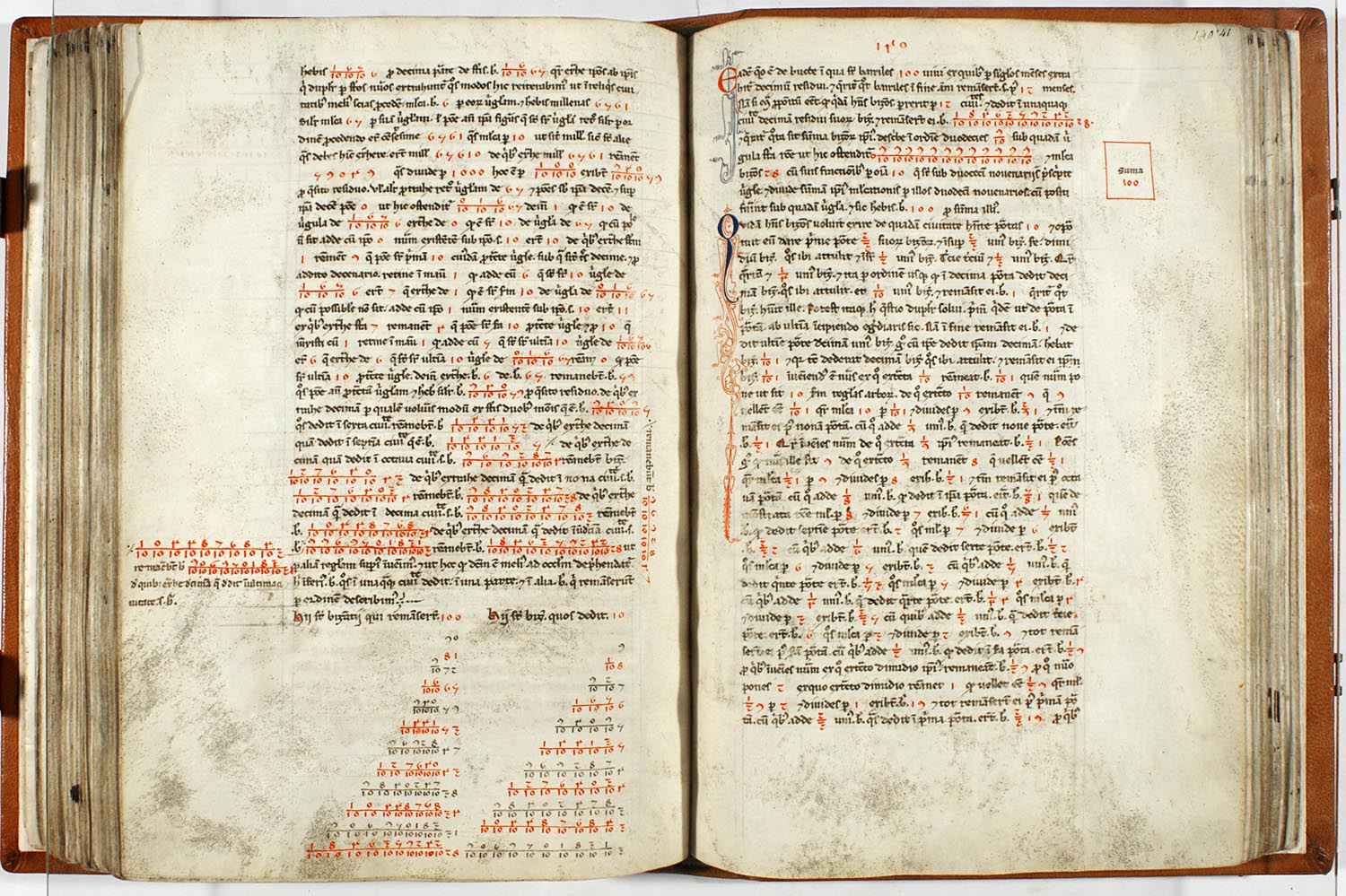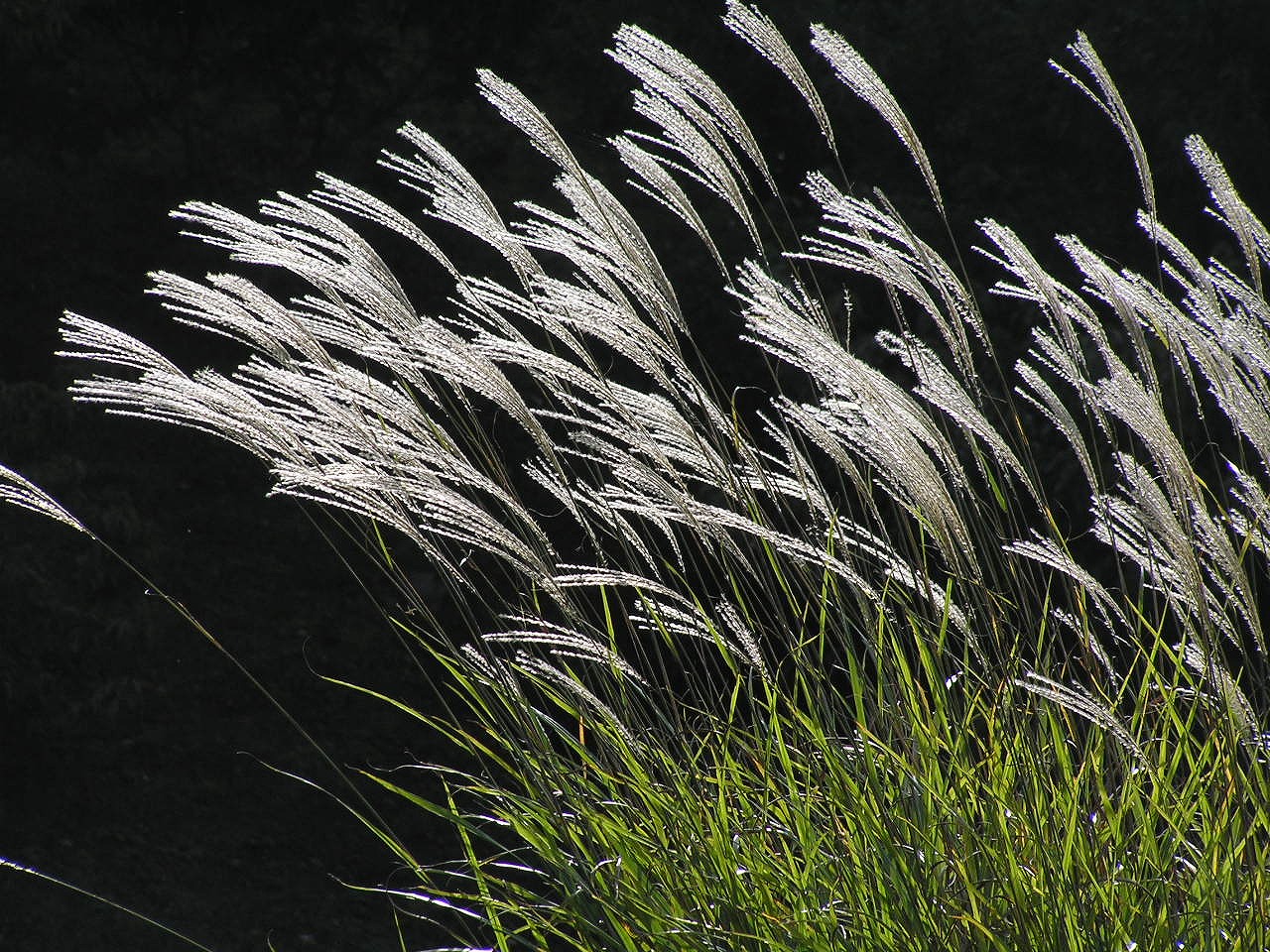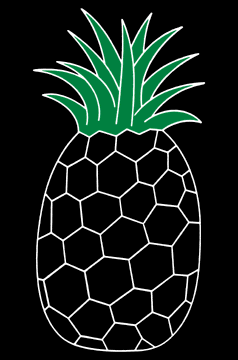
Wallpaper by artist Yuken Teruya. [o]
in the pock-marked park fragments remain of vast forests
in fading light a scarred bench a broken fountain a buried river
something slips away but he’s still at his modest task: sitting in a warm room
strategizing against entropy doesn’t ask why he just works here
crystal winter light prismatic equilibrium shifting time slowing down
the cat is talking to her in a language she doesn’t understand
while she is trying to follow thoughts the length of a poem
the poem is a derivative of proportions in nature
the poem is determined by the form it is describing
she continues to talk to the cat knowing he doesn’t understand her
up north in his cabin her flesh adored she loved the land more than him
a prisoner of his poverty subsisting in solitude far from family and friends
she hated his fantasy of a better life
now she wanders solitary through the city looking for what’s wild
beside rivers ravines and swamps on native trails a swan among reeds
she plants herself beside guerrilla gardeners her hands deep in earth
growing food behind camouflaged fences harvesting hidden orchards
she delights in trees that blossom everywhere unnoticed in their ripeness
other moments other molecules crystallize revise themselves improvise
speculate heckle act at a distance bodies of language become
the language of the body what the Thunder speaks we do not hear what
we fail to comprehend rends us orphaned by our own fixed destinies as
Shakespeare knew the whole much simpler than each complex individual not
daring to go out into the wilderness to see what is shaking in the wind tall grasses
holding the light in their feathery tips while rhizomes underground connect to each
other not one understanding but several broken contexts language
moving toward misinterpretation chaotic inflation before dew dries and mist
dissipates water finds its own level not always flowing
in constructed channels anomalies altering all categories more than
four humors body’s elemental fluids more than melancholia and phlegm and bile and
blood our chosen notational system affecting the results
facing north standing slightly apart changing the past
by not forgetting drawing with the lightest of brush strokes
his Celtic ear listening for her insistent voice in the inner house
behind the door under the stairs not lost in the ebb of
conversation at the blue core a certain tone with\
its own music a particular tension in juxtaposition
here in our own imperfect garden where the creek flows
underground where the dogs as big as people arrive with apples in their mouths
where it rains every day at four o’clock where flowers bloom
above the bare branches a large green squash hangs from a vine wrapped around
a dead tree an Ojibwa comes by to interpret where the chiropractor goes for a walk his back bent from leaning over his
work where
the taciturn doctor has heart problems and the barber’s hair is unkempt at three in
the afternoon sunlight on a bird’s wing on the surface tension of
water held in the transparent vessel the poem writing him
more than him writing a poem1 …and looking at Rome as if into a glass2
he lifts the glass and drinks it a universe of energy including
particles with mass and diversity seen only in the sidereal instrument of poetry
measuring smaller galaxies with the resonance of radio waves
obscured by familiar dust motes scattered light even
the most intimate never completely known
he constructs the poem like a Feynman diagram each one an authority on their own text
when he reads aloud words remember themselves poems listen
to their own inflections whispers of other poets other Others
a tree made from a paper bag inside that paper bag 3 the ear obedient
to the syllables engaging speech where words are least careless
and least logical hearing the breath in the body the rhythm of an ex-animal
verse conceived with the relevance of the human voice dragging his bone over town 4
following a line already written down in the cells his job to put a frame
around movements of clouds in early morning light the writing as an occasion
of reverent familiarity 5 constantly going to that impossible place a dance
of gratitude serious play tricky improvised down
and dirty complex intense illusive full of
warnings and forgetfulness traps and maneuvers a walk
around the world letting go of the outline only shadows of silhouettes
beings pouring in upon the page an Irish welcome for each one opening
the door and inviting in all sentient beings as guests 6 waking early in the morning
when the sky’s transparent blue crossed with high thin clouds
he wonders about the hidden structure of the moment small differences
in initial conditions great differences in final phenomena
when the light hits the tops of the trees and sunflowers turn in that direction
he’s sitting on his bench sketching the movements of the quotidian
the ongoing dream where everything is happening simultaneously
in ephemeris time his autobiography by other means no storyline
the monk in the morning sweeping his wooden island all the seasons
coming to visit him eternity in the present only 7
atomic memories being formed constantly simultaneously now
he’s leaving for work as the sun goes down wearing a light on his bike helmet like a lamp on a miner
breaking rock in the dark a memory machine made of misinterpretation
field cancerization multiple misunderstandings springing up in the same location
at the same time recurrent disturbances at the site of the incision
millions of cells dividing copying dna into new cells
the imperfect as part of the process a natural tendency toward disorder
inevitable genetic errors evolutionary necessity of mutation
translational velocity exuberant cells uncertainties
1 Eli Mandel, 2 Dante Alighieri, 3 sculpture by Yuken Teruya, 4 Michael Ondaatje on Buddy Bolden, 5 Dennis Lee, 6 Pema Chodron, 7 Ron Silliman.

Libor Abaci is a historic book on arithmetic by Fibonacci. 1

Nicholas Power fills out the
WILD CULTURE SCRIBBLER'S QUESTIONNAIRE
1 What is your first memory and what does it tell you about your life at that time and your life at this time?
My first memory is of battling giant snakes in a rainforest. I was actually about two years old living in Victoria, B.C. and those may have been worms in a mud puddle. Similar to my own mythologizing today, the colours were bright and the memory is of an adventure.
2 Can you name a handful of artists in your field, or other fields, who have influenced you — who come to mind immediately?
bpNichol, W.G. Sebald (writers), Lisa Keedwell (visual artist), Danny Michel (musician), Clare Coulter (actress).
3 Where did you grow up, and did that place and your experience of it help form your sense about place and the environment in general?
I grew up in Ottawa and the swamp and woods between my house and the Ottawa River and the river itself were and still are very important loci for me. The solitude and sense of acceptance and the light in the woods just across the street from my childhood home are fundamental and talismanic. Neighbourhood beauty is what claims me. Also the sense that this place had been lived in for a long time before the nearby houses were built was ‘known’ by us in our play there.
4 If you were going away on a very long journey and you could only take four books — one poetry, one fiction, one non-fiction, one literary criticism — what would they be?
The Duino Elegies and Sonnets to Orpheus (Rainer Maria Rilke), Coming through Slaughter (Michael Ondaatje), Arctic Dreams (Barry Lopez), The Roland Barthes Reader.
5 What was your most keen interest between the ages of 10 and 12?
Hockey.
6 At one point did you discover your ability with poetry?
The interest has been since high school, the ability about eight years ago.
7 Do you have an ‘engine’ that drives your artistic practice, and if so, can you comment on it?
Getting up early and going outside to watch the clouds, to observe the same part of the neighbourhood again and again in different light. I also free associate using the internet!
8 If you were to meet a person who seriously wants to do work in your field — someone who admires and resonates with the type of work you do, and they clearly have real talent — and they asked you for some general advice, what would that be?
Write as often and as much as you can in as many different ways as you can until you start to hear something that only you can write.
9 Do you have a current question or preoccupation that you could share with us?
I’m trying to understand what the Greeks during Homer’s time understood as the middle voice. “The person in question is neither purely active nor purely passive — this is what we talk about when we say someone is being instructed by or inhabited by the gods.” — John Peradotto, Man in the Middle Voice.
Lars Jan, who had a major installation in the recent Nuit Blanche in Toronto (www.Holocenes.es), was quoted in NOW Magazine: We now “require thinking on a scale at which we’re not really evolved to think. I want to access the imagination as a way to make up for our lack of sensory capacity to think and respond to the long-term . . . a long-form thought process we lose in urban places . . . associative daydreams . . . an instinct I don’t have control over that is guiding me and somehow resonates inside other people.”
10 What does the term ‘wild culture’ mean to you?
Both the botanical and the human culture that finds its own way of growing, that pays attention to natural cycles and persists.
11 If you would like to ask yourself a final question, what would it be?
What’s next? I’ve just finished a book-length poem called 'wild uncertainties', spiraling through the Fibonacci sequence [from which the poem published here is taken]. Though I’m still resonating with it, I’m curious what form the writing will take now.

Japanese pampas grass . . . beauty from natural calculations. 2
THE FIBONACCI SEQUENCE . . .
. . . is the series of numbers:
0, 1, 1, 2, 3, 5, 8, 13, 21, 34, ...
The next number is found by adding up the two numbers before it.
The 2 is found by adding the two numbers before it (1+1)
Similarly, the 3 is found by adding the two numbers before it (1+2),
And the 5 is (2+3), and so on.
Example: the next number in the sequence above would be 21+34 = 55
Here is a longer list:
0, 1, 1, 2, 3, 5, 8, 13, 21, 34, 55, 89, 144, 233, 377, 610, 987, 1597, 2584, 4181, 6765, 10946, 17711, 28657, 46368, 75025, 121393, 196418, 317811 . . .
The Fibonacci sequence is named after Fibonacci, an Italian mathematician, AKA Leonardo Bonacci, and a few other names (c. 1170 – c. 1250). His 1202 book Liber Abaci introduced the sequence to Western European mathematics, though the sequence had been described earlier in Indian mathematics.
Fibonacci numbers are intimately connected with the golden ratio; for example, the closest rational approximations to the ratio are 2/1, 3/2, 5/3, 8/5, ... . Applications include computer algorithms, such as the Fibonacci search technique and the Fibonacci heap data structure, and they also appear in biological settings, such as branching in trees, phyllotaxis (the arrangement of leaves on a stem), the fruit sprouts of a pineapple, the flowering of an artichoke, an uncurling fern and the arrangement of a pine cone.



Fibonacci sequence animations. 3

Nature, design and numbers. Commonly known as the fiddlehead fern, the ostrich fern (Matteuccia struthiopteris) comes up in floodplain areas in the spring.
The tightly unfurled fronds make a delicious steamed vegetable. The ostrich fern is the natural world mascot of the Society for the Preservation of Wild Culture. 4

NICHOLAS POWER is a founding member of the Meet the Presses literary collective, and has performed with the storytelling duo, The Wordweavers, and the sound poetry ensemble, Alexander’s Dark Band. Books he has been published: Melancholy Scientist (published by Teksteditions), wells (Underwhich Editions), a modest device (The Writing Space), and No Poems (Battered Press). Nicholas has been editing and publishing with his own Gesture Press for 35 years. He works as a psychotherapist in private practice in Toronto.
This poem was previously published in The Journal of Wild Culture, November 11, 2014.

Add new comment